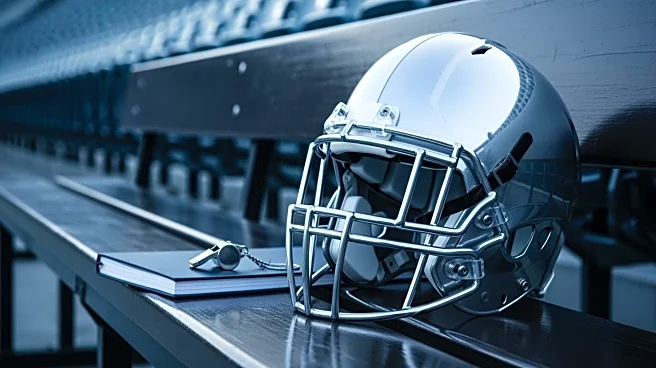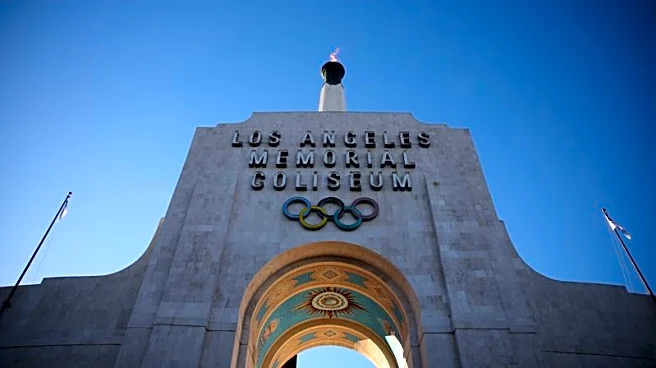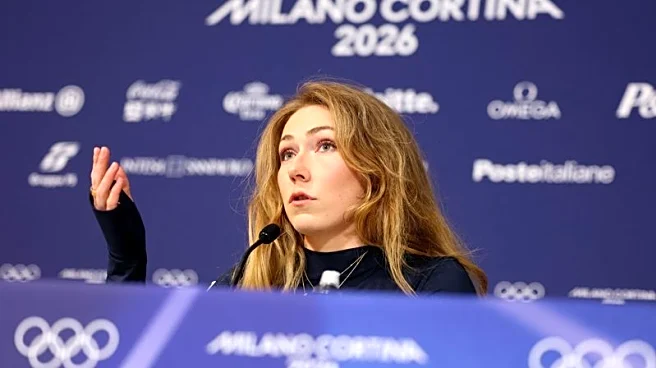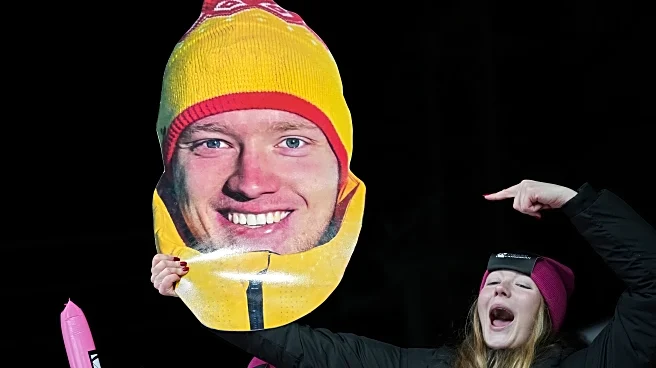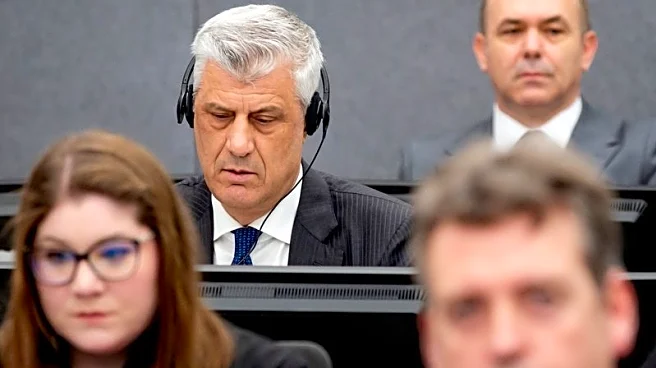What's Happening?
NFL teams are advising players to avoid hip thrust celebrations on the field, following a recent incident involving Carolina Panthers running back Rico Dowdle. Dowdle was fined $14,491 by the NFL for performing a hip thrust celebration after scoring a touchdown
against the Green Bay Packers. The celebration, inspired by a comedic skit from Keegan-Michael Key and Jordan Peele, involves a fictional rule where players can pump their hips twice, but a third pump results in a penalty. Dowdle's celebration led to an unsportsmanlike conduct penalty, moving the ball back 15 yards and causing the Panthers to miss the extra point. Coaches across the league are reportedly reminding players to keep such gestures off the field, with some prohibiting them entirely.
Why It's Important?
The NFL's stance on celebrations reflects its ongoing efforts to maintain sportsmanship and decorum during games. The fines and penalties associated with such gestures underscore the league's commitment to enforcing its rules and standards. This incident highlights the balance between player expression and adherence to league regulations. For teams, unsportsmanlike conduct penalties can have tangible impacts on game outcomes, as seen with the Panthers' missed extra point. The league's actions may influence how players choose to celebrate in the future, potentially curbing more flamboyant displays.
What's Next?
As the NFL continues to enforce its rules on player conduct, teams may implement stricter guidelines regarding celebrations. Players might need to find alternative ways to express their excitement that align with league standards. The incident could prompt discussions among players and coaches about the boundaries of on-field celebrations. Additionally, the league may review its policies to ensure clarity and consistency in enforcement.
Beyond the Headlines
The cultural impact of the Key & Peele skit on NFL celebrations illustrates how media and entertainment can influence sports behavior. The skit's resurgence in popularity highlights the intersection of sports and pop culture, where comedic interpretations can become part of real-world practices. This incident also raises questions about the role of humor and creativity in sports, and how they can coexist with professional standards.
